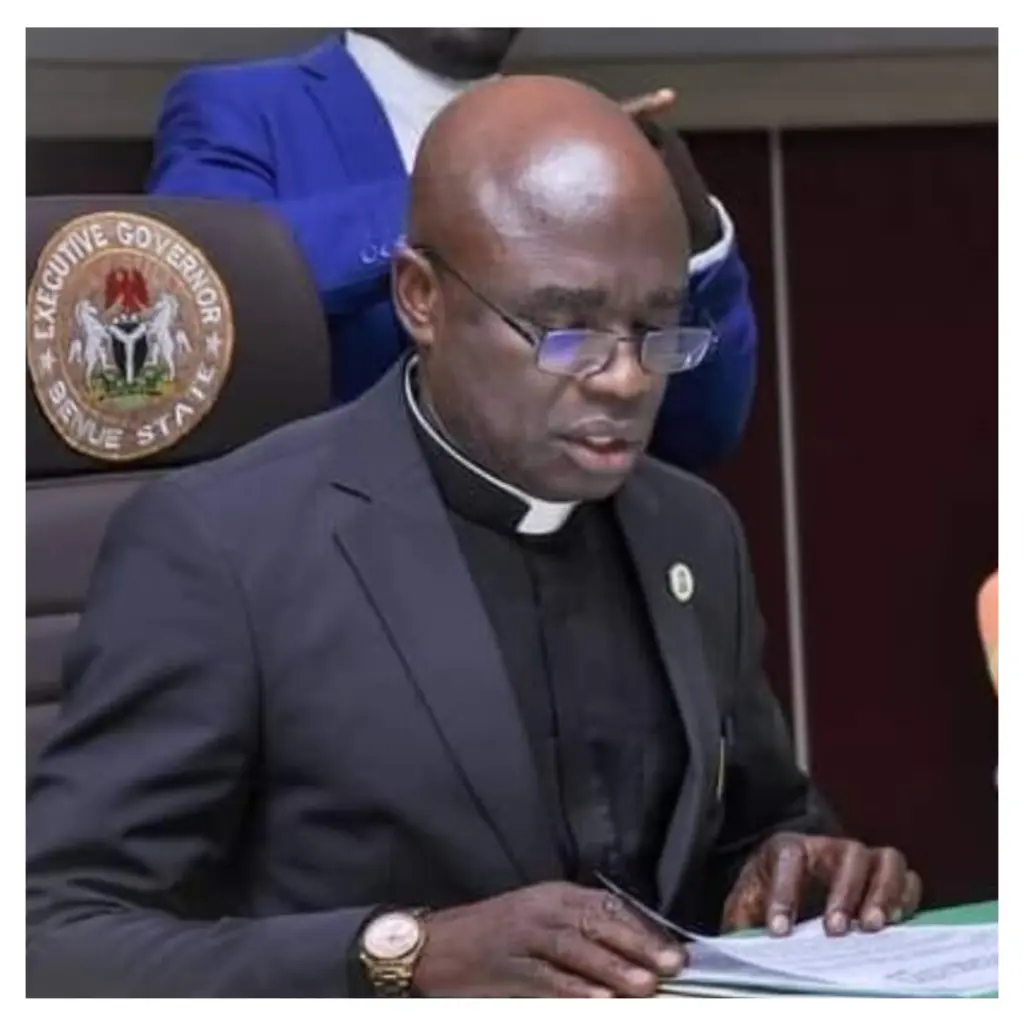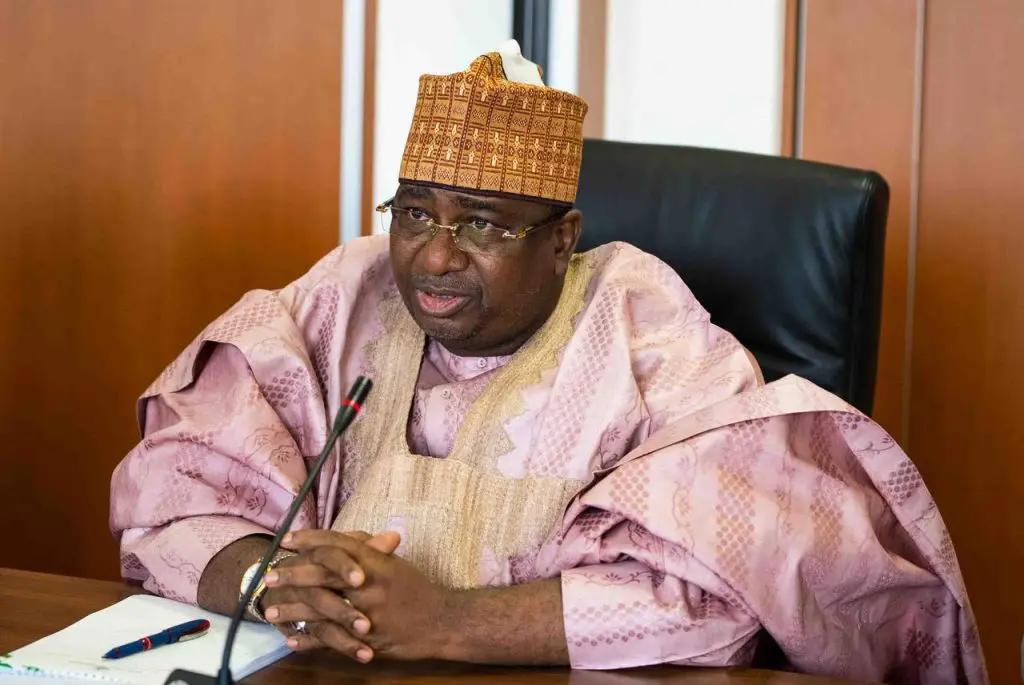Politics
Nigeria Customs Service Enhances Operations Through Strategic Alliances
Published
5 months agoon
By
Ekwutos Blog
…Signs Landmark Customs Mutual Assistance Agreements (CMAAs) with Indian Customs, others
As global trade grows increasingly complex, the need for strategic partnerships has become critical. From aligning with international frameworks to fostering collaborations with local and regional entities, the Nigeria Customs Service (NCS) has continually evolved to meet the demands of a dynamic trade environment. These partnerships are essential not only for combating smuggling and illicit trade but also for ensuring the seamless flow of legitimate trade that drives economic growth.
Over the years, the NCS has embraced various international and regional frameworks, signed Memorandums of Understanding (MoUs), and deepened cooperation with customs administrations worldwide. These efforts underscore the recognition that customs operations cannot function in isolation in an interconnected global economy. From adopting the World Trade Organisation (WTO) Trade Facilitation Agreement to implementing the World Customs Organisation (WCO) SAFE Framework of Standards, the NCS has demonstrated a commitment to efficiency, security, and transparency.
The WTO Trade Facilitation Agreement and Its Impact on NCS
The WTO Trade Facilitation Agreement (TFA), ratified in 2017, is a landmark accord aimed at simplifying and modernising global trade procedures. For Nigeria, the TFA provides a framework for reducing trade costs, eliminating unnecessary barriers, and improving the efficiency of customs operations. The NCS has been at the forefront of implementing TFA provisions to enhance trade facilitation.
The agreement emphasises transparency, prompting the NCS to publish import and export procedures online, making them accessible to stakeholders. Furthermore, the adoption of pre-arrival processing, Time Release Studies, Advance Ruling Systems, Authorised Economic Operator (AEO) programmes, and risk-based management systems aligns with the TFA’s focus on efficiency. These measures are set to reduce clearance times at Nigeria’s ports, boosting the country’s competitiveness in global trade.
By embracing the TFA, the NCS has not only facilitated legitimate trade but also improved compliance rates among importers and exporters. This balance between trade facilitation and regulatory enforcement reflects the Service’s commitment to fostering an environment conducive to economic growth.
The WCO SAFE Framework of Standards: Strengthening Global Supply Chains
The WCO SAFE Framework of Standards is another critical pillar in the NCS’s operational strategy. Designed to secure and facilitate global trade, the framework promotes cooperation between customs administrations and the private sector while ensuring the safety and security of supply chains.
For the NCS, implementing the WCO SAFE Framework has been transformative. The Service has adopted risk management tools to identify high-risk consignments, streamlining the inspection process for low-risk goods. This has resulted in faster clearance times and reduced congestion at ports.
In addition, the Authorised Economic Operator (AEO) programme, a key component of the framework, has incentivised compliance by offering trusted traders benefits such as expedited processing and reduced inspections.
By aligning with the WCO SAFE Framework, the NCS has enhanced its capacity to combat smuggling, counterfeiting, and other illicit activities, ensuring that Nigeria’s borders remain secure while facilitating legitimate trade.
Customs-to-Customs Cooperation: A Global Perspective
International cooperation is vital for the NCS to effectively address cross-border challenges. Customs-to-customs collaboration facilitates the exchange of information, intelligence, and best practices, enabling the NCS to tackle complex issues such as smuggling and tax evasion.
On 18 July 2024, Comptroller-General of Customs, Bashir Adewale Adeniyi, took a significant step in strengthening global partnerships by participating in a bilateral meeting with U.S. Customs and Border Protection (CBP) in Washington, D.C. The meeting focused on reviving the over-decade-old Customs Mutual Assistance Agreement (CMAA) to enhance service delivery through global collaborations and data-driven decision-making to improve national security and combat cross-border crimes.
The CGC highlighted the NCS’s ongoing efforts to address challenges such as drug trafficking, arms smuggling, and money laundering, while ensuring national security. He noted that reviving the CMAA would bolster the NCS’s capacity to protect Nigeria’s borders and enhance service delivery.
On Wednesday, 8 May 2024, Comptroller-General of Customs (CGC) Adewale Adeniyi led some of his management team in Shenzhen, where he signed a bilateral affiliation with China, which, according to him, will boost the two countries’ import-export operations and favour the businesses of MSMEs in Nigeria.
The CGC appreciated the Vice Minister of the General Administration of Customs of the People’s Republic of China, Wang Lingjun, for showing interest in signing MoU with the NCS. He also applauded the recent exponential rise in the development of e-commerce, adding, “We know a lot of Nigerian companies and SMEs take advantage of the opportunities aided through e-commerce.”
CGC Adeniyi expressed optimism that the NCS-GACC Memorandum of Understanding will serve as a critical component of cooperative security and trade relationship between the two nation’s Customs agencies, reiterating that “The relationship will create a cooperative mechanism for NCS and the GACC to collaborate on supply chain security standards and enhance the economic stability of both nations.”
“These are some of the many reasons why Nigeria Customs Service pays attention to what is happening in China. As you have said, China is making the biggest trade in Nigeria, and the basic context of International Trade is ‘your export is our import’. I appreciate the numbers that you gain in Nigeria. But it is also common knowledge that those numbers sometimes must take account of the large volume of informal trade that exists between us.” CGC Adeniyi said.
Mr Wang Lingjun of the General Administration of Customs, who represented Vice Minister Sun Yuning, and signed the MoU on behalf of the People’s Republic of China, expressed satisfaction over CGC Adeniyi’s vision that the affiliation between two agencies will serve as a mechanism for creating opportunities that Nigeria and China share on a wide range of economic issues and trade facilitation.
In 2023 alone, the NCS successfully intercepted over 5,000 illegal firearms and large quantities of counterfeit pharmaceuticals. Such achievements underscore the importance of customs-to-customs partnerships, which also include capacity-building initiatives and technical assistance to modernise technologies and practices.
Customs-to-Business Partnerships: Enhancing Trade Facilitation
In addition to international cooperation, the NCS has prioritised customs-to-business partnerships to foster trust and collaboration with the private sector. These partnerships are crucial for balancing regulatory enforcement to facilitate legitimate trade.
The Authorised Economic Operator (AEO) programme is a prime example of customs-to-business collaboration. The programme has encouraged greater transparency and adherence to customs regulations by granting benefits to compliant traders. Additionally, the NCS has engaged with stakeholders through public forums and consultations to address concerns and improve service delivery.
On September 2, 2024, the NCS rolled out the benefits of the AEO programme to select importers, exporters, SMEs, and logistics operators who demonstrated high levels of regulatory compliance.
In the first week of the rollout, one of the beneficiaries voluntarily disclosed an underpayment of duties due to the erroneous classification of a high-value item. The error, identified through a self-audit, was reported to the NCS without waiting for detection by customs officials. By taking immediate corrective action, the company avoided penalties while retaining the benefits of the AEO programme.
These partnerships have enhanced the efficiency of customs operations and bolstered Nigeria’s reputation as a trade-friendly nation. By working closely with businesses, the NCS has created an environment where compliance is rewarded, and trade facilitation is prioritised.
Regional Integration: AfCFTA’s Role in NCS Operations
The African Continental Free Trade Area (AfCFTA) represents a significant opportunity for Nigeria and the NCS. By removing trade barriers across Africa, AfCFTA aims to boost intra-African trade and foster economic integration.
To align with AfCFTA objectives, the NCS has facilitated Nigeria’s first shipment to Kenya, with Lucky Fibres, a subsidiary of the Tolaram Group, becoming one of the first companies to ship goods to Kenya under the African Continental Free Trade Area Agreement (AfCFTA).
During a visit to the Apapa Area Command on Wednesday, 30 October 2024, to ensure proper documentation and verification of the shipment, Olusegun Olutayo, Senior Trade Expert and Lead of Trade Enablement at the Nigeria AfCFTA Coordination Office, noted that the shipment from Nigeria to Kenya, specifically to the port of Mombasa, demonstrates the collaborative spirit of AfCFTA.
“It is not that we are doing it alone; I have already sent a message to the Secretariat in Ghana that there will be a shipment under AfCFTA to Kenya. I have also communicated with the AfCFTA implementation committee in Kenya. So this is the spirit we are building to ensure that we increase intra-African trade,” Olutayo noted.has taken proactive measures, such as implementing electronic single windows for trade, adopting geospatial intelligence tools, and enhancing border management systems. These initiatives are essential for ensuring Nigeria benefits fully from AfCFTA while safeguarding its revenue and security interests.
Recent MoUs: Strengthening Local and International Partnerships
The signing of MoUs with India on 17 November 2024 and NAFDAC underscores the NCS’s commitment to fostering strategic partnerships.
The CMAA with India establishes a framework for information sharing, joint investigations, and enforcement of customs laws. This partnership, which culminated from negotiations that began in 2016, is expected to streamline border clearance processes, reduce trade costs, and improve enforcement.
Key provisions include the accurate imposition of duties and taxes, verification processes, strengthened mechanisms to combat customs offences, and robust channels for information exchange.
Similarly, the recent MoU signed with NAFDAC at the side event during CGC’s Conference, held between 12 to 15 November 2024 in Abuja, highlights inter-agency collaboration in addressing public health and safety challenges. This partnership seeks to combat the importation of counterfeit pharmaceutical products, ensuring Nigerians have access to safe and high-quality medicines.
NAFDAC’s Director-General, Prof. Mojisola Adeyeye, emphasised that the agreement would strengthen efforts to safeguard public health by reinforcing regulatory frameworks and ensuring the integrity of food and drug products.
Conclusion: A Future Built on Collaboration
The Nigeria Customs Service’s strategic partnerships are a testament to its commitment to modernising customs operations, enhancing trade facilitation, and safeguarding Nigeria’s economy. From aligning with international frameworks like the WTO TFA and WCO SAFE Framework to forging partnerships with key stakeholders, the NCS has demonstrated a clear vision for the future.
Drawing from the recently concluded 2024 Comptroller General of Customs Conference, themed “Engaging Traditional and New Partners with a Purpose,” serves as a strategic platform for stakeholders to explore innovative ways to strengthen partnerships and address challenges within the global supply chain.
The conference emphasises how the Nigeria Customs Service (NCS) is leveraging collaborations with traditional and emerging partners to enhance its core revenue generation, trade facilitation, and compliance enforcement mandates. It examined how these partnerships can improve efficiency, promote seamless trade, and ensure compliance with global regulations, thereby bolstering Nigeria’s economic development.
With thought-provoking panels, keynote speeches, and interactive discussions, the event highlights the NCS’s commitment to modernisation and innovation. It underscores the pivotal role of partnerships in achieving operational excellence and driving Nigeria’s integration into the global economy.
You may like


Trump orders American flags flown at half-mast to honour Pope Francis


Meet African Cardinals who could be the next Pope


Benue was bleeding, now it’s healing – Governor Alia


NSCDC Foiled Attack on Church in Plateau State


Murder of First Class University Student: Police complete extradition of fugitive


JUST IN: Suspected Bomb Explosion Reportedly Rocks Maiduguri Prison Cell Holding Convicted OCTOBER Bomber, Charles Okah
Politics
Benue was bleeding, now it’s healing – Governor Alia
Published
4 hours agoon
April 21, 2025By
Ekwutos Blog
Benue State Governor, Hyacinth Alia, has declared that the state, once overwhelmed by insecurity and mismanagement, is now on a path to healing under his leadership.
Speaking in an exclusive interview with Vanguard, Alia reflected on his transition from Catholic priesthood to politics, his administration’s efforts in tackling insecurity, and his unique approach to fiscal discipline.
As he marks 35 years in the priesthood this July, Alia revealed that his decision to enter politics stemmed from a deep understanding of the challenges facing Benue.
“I’ve spent my life serving the people of Benue in the suburbs, understanding their struggles. It wasn’t difficult for me to transition because I was already working to fix problems as a priest,” he said.
Alia said his transition into politics was driven by an urgent desire to bring change. “As a priest, you spend your time supporting people, solving environmental and family problems. Politics was just an extension of that, although with the added responsibility of navigating a complex political environment,” he added.
On the issue of insecurity, the governor delved into the historical context, explaining that Benue’s security challenges are linked to broader regional dynamics. He noted that Benue, like other parts of Nigeria, is facing a deepening crisis caused by the ECOWAS transhumance protocol, which allowed for cross-border grazing.
“When we were growing up, there were no issues with herders. But after the ECOWAS protocol was adopted, things drastically changed,” he explained.
Alia disclosed that as of June 2024, about 500,000 people from 17 of the state’s 23 local governments were displaced due to violence.
“Our people are primarily farmers, but we’ve seen the land grab that accompanies these attacks. This is no longer pastoralism – it is a calculated destabilization,” he said.
He also emphasized that despite the challenges, his government is working to tackle displacement through a three-pronged solution: temporary shelter, integration, and relocation back to ancestral lands.
Alia urged the Federal Government to reconsider Nigeria’s participation in the ECOWAS protocol, calling for a review of the policy that has contributed to insecurity. “If the Federal Government revisits this protocol, it could make a huge difference. We need to fix our internal security first,” he said.
In addressing the state’s finances, Governor Alia revealed his commitment to fiscal transparency, pointing to the consistent payment of salaries on the 25th of each month.
“Before I came in, civil servants and pensioners went without their pay. I inherited N359 billion in debt, but we found a way to make sure workers get their pay on time,” he said, adding that he had implemented a new standard where salaries are paid even on public holidays or weekends.
Despite facing criticism from some quarters, particularly among the political elite, Alia stood firm in his belief that timely salary payments were a necessary reform. “People used to take the fish without learning to fish. Now, they’re learning to be self-reliant, and it’s creating some enemies,” he said.
The governor also reflected on his relationships with the judiciary and his political party, stressing that his administration is committed to transparency and the rule of law. “There have been no issues with the judiciary. We followed due process with the NJC, and any disputes were addressed professionally,” Alia explained.
As he looks towards the future, the governor expressed confidence that his administration’s approach to governance will continue to transform Benue. “It’s about proper planning, strategy, and execution. We’ve brought a new thinking to Benue, and the people are beginning to see the difference,” he concluded.
Politics
Kebbi: Era of handpicking LG chairmen is over – Gov Idris
Published
8 hours agoon
April 21, 2025By
Ekwutos Blog
Kebbi State Governor, Nasir Idris, has declared an end to the era of handpicking local government chairmen in the state, affirming that those currently holding office were genuinely chosen by the people.
The governor made this known while addressing journalists on Sunday, shortly after a consultative meeting with the 21 local government chairmen, their deputies, and 225 councilors at the Government House, Birnin Kebbi.
Expressing satisfaction with their performance so far, Governor Idris praised the council officials for their unwavering loyalty and support to his administration.
“I am happy about their performance. The chairmen have shown unalloyed loyalty and have justified the confidence reposed in them. Most importantly, they are the true choices of their people, and the era of handpicking candidates is gone for good in Kebbi State,” he declared.
The governor explained that the essence of the meeting was to engage directly with local government leaders, understand the issues affecting grassroots communities, and jointly chart a course for accelerated development.
“Sessions like this allow us to rub minds, identify challenges, and find practical solutions that will fast-track development in our communities,” he noted.
Governor Idris also reaffirmed his administration’s commitment to inclusive governance through continuous consultation with key stakeholders, aimed at improving the socioeconomic wellbeing of the people.
The meeting was led by the state chairman of the Association of Local Governments of Nigeria (ALGON), Alhaji Muhammad Dahiru Nayaya Ambursa, who doubles as chairman of Birnin Kebbi Local Government.
Also in attendance were the Kebbi State APC chairman, Abubakar Kana Zuru; Secretary to the State Government, Yakubu Bala Tafida; Commissioner for Local Government and Chieftaincy Affairs, Garba Umar Dutsinmari; and the Accountant-General, Muhammad Bello Ibrahim Nahaliku.
Politics
2027: Some PDP Governors Set to Defect to APC, Back Tinubu’s Re-election Bid
Published
1 day agoon
April 20, 2025By
Ekwutos Blog
At least three PDP governors are contemplating defection to APC, signaling significant shifts within the opposition ahead of 2027 elections.
In a major realignment of political forces ahead of the 2027 general election, at least three to four governors of the Peoples Democratic Party (PDP) are set to defect to the ruling All Progressives Congress (APC) and support the second term push of President Bola Tinubu.
This is in response to political rumblings in many northern states, which are threatening withdrawal of support for the incumbent President’s re-elections. Governor Umo Eno of Akwa Ibom State last Friday, at a public event, confirmed support for President Tinubu saying in his state, there’s no more party politics as they are all in a “unity party” of PDP and APC.
However, Governor Sheriff Oborevwori of Delta State, Governor Peter Mbah of Enugu State and the suspended Governor of Rivers State, Siminalayi Fubara, are weighing options of support for Tinubu’s second term whilst not changing or decamping from the opposition PDP.
With Governor Eno’s open support for Tinubu’s reelection, THISDAY gathered that the entire machinery of the PDP in the state will be deployed for APC’s victory and also to facilitate the return of the President of the Senate, Senator Godswill Akpabio to the upper chamber as president in 2027.
The planned defection or realignment of more PDP governors, it was learnt, has brightened APC and Tinubu’s chances in the 2027 general election, especially with threats in the North to withdraw support.
Tinubu won 62 per cent of his votes in the 19 northern states in the 2023 presidential election.
Investigation revealed that the defection talks with many PDP governors have reached advanced stages.
However, certain conditions are said to be attached to the proposed deals to make the deals a win-win for the negotiating parties.
THISDAY gathered that President Tinubu had also met with some APC senators as a prelude to the governors’ defections and informed them of the development.
A competent source privy to the negotiations told THISDAY that Governor Eno agreed to join the APC because he also feared his re-election might be truncated and wanted to secure it ahead of 2027.
It was also gathered that Akpabio is coordinating talks for his defection.
Uno was also said to be determined to use his defection to get the Economic and Financial Crimes Commission (EFCC), off the back of his benefactor and predecessor, Udom Emmanuel, who is currently under the watch of the agency.
To also prepare the minds of his colleague-governors in the PDP, Eno was alleged to have refused to host PDP governors in his state.
To reciprocate Eno’s endorsement of Tinubu, the Senate President, Akpabio, pledged to support the governor for a second term.
Akpabio, represented by the Chairperson of the National Assembly Service Commission, Saviour Enyiekere, gave the endorsement in his Goodwill message at a public lecture organised by the Faculty of Social Science, University of Uyo, on Tuesday.
Akpabio’s representative said: “Sir, for doing that (endorsing Tinubu), I am a member of the All Progressives Congress. I am speaking for the elders and to tell you we are also going to support you for a second term.”
“We will support you in whatever aspiration you have. Yesterday, you broke a record by being the first opposition governor to declare support for a second term bid of President Tinubu,” he added.
Akpabio had in January 2024, at a meeting of the APC leaders in Uyo, the state capital, said it was abnormal for him as Senate president not to have the APC produce the governor of his state in 2027.
Governor Oborevwori, it was learnt, is also weighing options on whether to remain in the PDP and back Tinubu’s reelection or quit the opposition party.
He is said to be waiting for the other party to sign its part of the deal for him to make a commitment.
The suspended governor Fubara is also weighing the options on whether to back Tinubu whilst retaining his membership of the PDP or defect to the APC.
THISDAY also gathered that Fubara’s initial plan to defect to the APC was frustrated by the political crisis that engulfed his state.
His plans to join the APC were believed to have been stalled largely due to President Tinubu’s displeasure with his handling of the political crisis in his state and partly by his estranged benefactor, the Minister of the Federal Capital Territory (FCT), Nyesom Wike’s effective grip on the APC structure in the state.
For the embattled governor, the decision to join the ruling APC was to secure his mandate against the subterranean moves by his political opponents to remove him from office or deny him a second term ticket.
He was said to have rejected the PDP governors’ resolution to challenge the state of emergency declared in his state in court due to his plan to reconcile with his political enemies and possibly defect to the APC.
Though the PDP governors moved ahead with the court action, he was said to have told his colleagues pointblank that he would not be a party to any move that could jeopardise his four years mandate.
THISDAY gathered that it was not a mere coincidence that the three governors were absent at the recent meeting of the PDP governors held in Ibadan, Oyo State.
Delta and Akwa Ibom states’ governors sent their deputies to the meeting since they had begun a gradual withdrawal from the PDP, while Fubara did not send any representative.
On his part, Governor Mbah, who is known to be a friend of the Presidency, is also weighing the options ahead of 2027.
The governor, a committed member of the PDP, is considering joining the APC to support Tinubu’s reelection and secure his second term or remaining in the PDP and work for Tinubu’s victory.
The pro-Tinubu PDP governors were said to be behind the decision of the PDP governors not to support any coalition with other parties to sack the president in 2027.
THISDAY also learnt that the planned defections have raised concerns in the PDP as the stakeholders and leaders of the party are considering the grave implications for a party that is trying to rebuild itself.
They were of the view that if this happened, the opposition party might be badly affected in the 2027 national elections, as this could deal a deadly blow to them and signal a walkover for President Tinubu.
Following this development, PDP stalwarts held the view that the party leadership must meet as soon as possible to weigh the options before them, particularly on how to stop the three governors from leaving the party.
However, those who believe that the deal has not been totally sealed hinged their position on the fact that the governors are aware that should the coalition sail through and a viable candidate from the South-south emerges, then they would have struck a bad deal, since the zone is believed to dislike the APC and might vote against it.
But with the in-fighting in the PDP over the proposed coalition to wrest power from Tinubu and the APC, pundits are not certain if the majority of the PDP leaders understood the full weight of the situation at hand.
The PDP leaders’ handling of the development would define the future of the party to a large extent.
Meanwhile, as a precursor to Tinubu’s bid to get the north to back him in 2027, THISDAY further learnt of a meeting this weekend in London between the president and a major opposition figure from Kano State.
The meeting, said to have been put together by Akpabio, also involves an influential monarch from the state.
The meeting aims to tackle the North’s perceived opposition to the president.
A second meeting involving a former president, who is expected to be in London, is being packaged as part of President Tinubu’s efforts to secure the support of the north.
Tinubu and APC leaders believe that in spite of some of the reservations about the former president, he still holds the ace in the north, and could determine the choice of majority of the voters in the 2027 general election.
The two proposed meetings, it was learnt, are essentially about the reelection of the president in 2027 and his current position in the north, which a majority of APC leaders believe is not looking good and could mar his chances at the 2027 poll if not addressed in time.

Trump orders American flags flown at half-mast to honour Pope Francis

Meet African Cardinals who could be the next Pope

Benue was bleeding, now it’s healing – Governor Alia
Trending

 Trending6 months ago
Trending6 months agoNYA demands release of ‘abducted’ Imo chairman, preaches good governance
- Business6 months ago
US court acquits Air Peace boss, slams Mayfield $4000 fine

 Politics6 months ago
Politics6 months agoMexico’s new president causes concern just weeks before the US elections
- Entertainment6 months ago
Bobrisky transferred from Immigration to FCID, spends night behind bars
- Entertainment6 months ago
Bobrisky falls ill in police custody, rushed to hospital

 Politics6 months ago
Politics6 months agoRussia bans imports of agro-products from Kazakhstan after refusal to join BRICS

 Politics6 months ago
Politics6 months agoPutin invites 20 world leaders
- Politics1 year ago
Nigerian Senate passes Bill seeking the establishment of the South East Development Commission.

